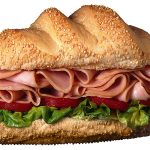
Do you eat healthy during the week, then ease off the brakes on the weekend? You’re not alone. But such a five days on-two days off eating regimen can erode diet quality, according to a study published recently in the Journal of the Academy of Nutrition and Dietetics. Not only did participants take in more calories on weekends than on weekdays, they were less healthy calories, to boot. They consumed more alcohol and fat, and ate less of the good stuff, like yogurt, fruits, dark green and orange vegetables, chicken, nuts and seeds, and whole grains. And if the calories you consume on the weekend exceed the number you take in during the week, that’s a net surplus — read: weight gain. Besides stalling any weight-loss efforts, weekend junk-food binges can also negatively impact the healthy bacteria in your gut. A lab study published in Molecular Nutrition & Food Research found that cycling on and off junk food was almost as detrimental to the delicate balance of the gut microbiome as eating it all the time. In particular, a junk-food diet reduces the microbes needed to metabolize flavonoids, a category of micronutrients thought to help with weight loss and brain health. If you look forward to letting loose on the weekends, find other ways to unwind. For instance, try a new activity — you’ll burn… read on >

















